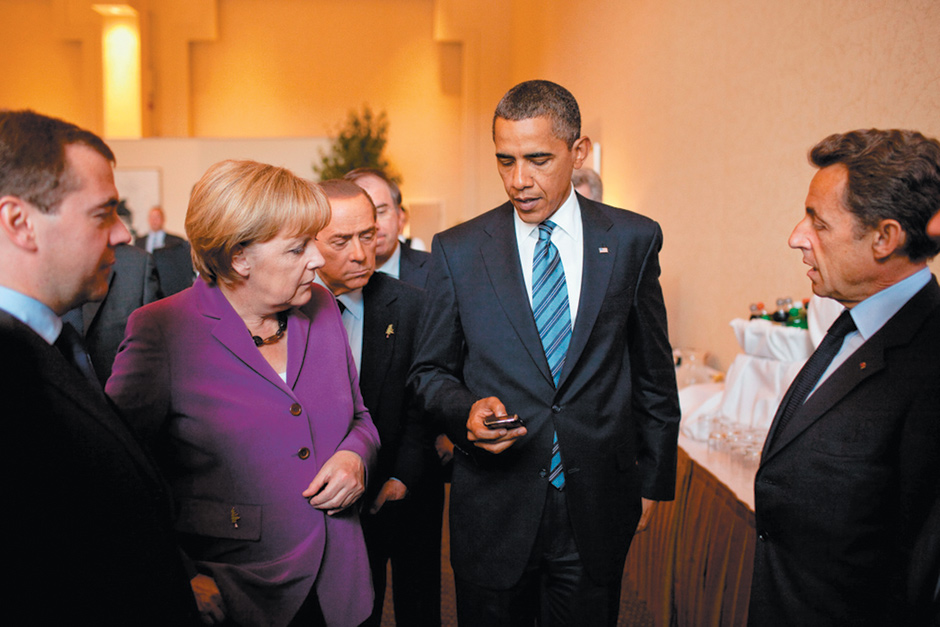The following is drawn from a speech by German Chancellor Angela Merkel to the German Parliament on January 29, 2014.
Six months ago, as a result of information from Edward Snowden about the workings of the American intelligence services, we were forcefully confronted with questions of data security. No one who bears political responsibility can seriously deny that the work of the intelligence services is essential for our security and for the protection of our citizens. No one who bears political responsibility can seriously deny that in an age of asymmetrical threats, of which September 11 is the best example, the work of the intelligence services has become more important than ever before. Precisely in order to avert these dangers, not only is the work of our own intelligence services extremely significant for us, but so is our cooperation with the intelligence services of our allies and partners.
It cannot be emphasized often enough that we are indebted to our American partners for valuable intelligence. Conversely our own intelligence services have also made valuable contributions to this international cooperation. Each time, the parliamentary oversight committee is informed about them. But no one who bears political responsibility can seriously deny that what we learned six months ago, in particular about the work of the American intelligence services, raises fundamental concerns.
There is a question of proportionality. There is a question of the relationship between danger and the means we choose to counter that danger. The German government is responsible for the protection of its citizens from attacks and crimes, and it is responsible for the protection of its citizens from assaults on their private lives. It is responsible for our freedom and security. Freedom and security have always stood in a certain tension with one another. They must constantly be held in balance by rights and laws.
In Germany we know this all too well from our long discussions of home surveillance and data retention. Can it therefore be right that our closest partners like the United States or Great Britain obtain access to all conceivable data with the justification that this serves their own security and the security of their partners—from which we might also benefit? Can it be right that one acts this way because others in the world do the same? Can it be right when it is finally no longer a matter of defense against the dangers of terrorism but rather of gaining advantages, even against allies, in negotiations at G20 summits or UN meetings—advantages that from my own years of experience I know should be entirely ignored?
Our answer has to be: no, that cannot be right. For it touches the core of what matters in cooperation between friendly and allied states: trust. Trust is the basis for peace and friendship between peoples. Even more, trust is the basis for the cooperation of allied nations. When we proceed as if the ends justify the means, when we do everything that is technologically possible, we damage trust; we sow mistrust. In the end there is less, not more, security.
We are discussing this with the US. I am convinced that friends and allies must be willing to agree on the principles of their cooperation in defending themselves against threats, and indeed each in its own interest. Today our views are far apart. Many say that attempts to reach such an agreement are bound to fail, that it is an unrealistic undertaking. That may be. Certainly the problems will not be resolved simply by my taking a trip. And certainly breaking off discussions in other areas, such as a transatlantic free trade agreement, would not really be helpful. In my opinion there is no other leverage, as it is so often called these days, that could compel America to think differently. In any case defiance has never led to success. I am conducting these discussions—very emphatically—with the force of our arguments, no more and no less. But I believe we have good ones.
The way is long, but it is worth it. For the possibility of total digital surveillance touches the essence of our life. It is thus an ethical task that goes far beyond the politics of security. Millions of people who live in undemocratic states are watching very closely how the world’s democracies react to threats to their security: whether they act circumspectly, in sovereign self-assurance, or undermine precisely what in the eyes of these millions of people makes them so attractive—freedom and the dignity of the individual.
—Translated from the German by Michael Shae




